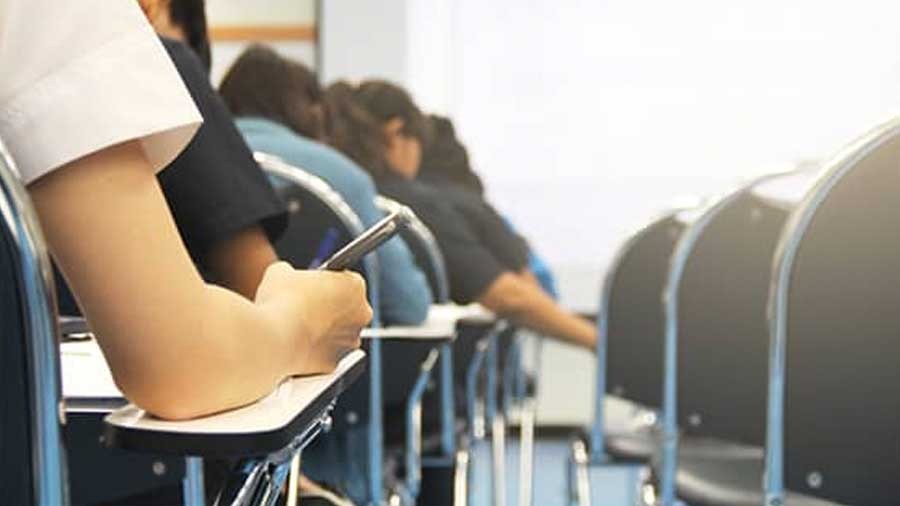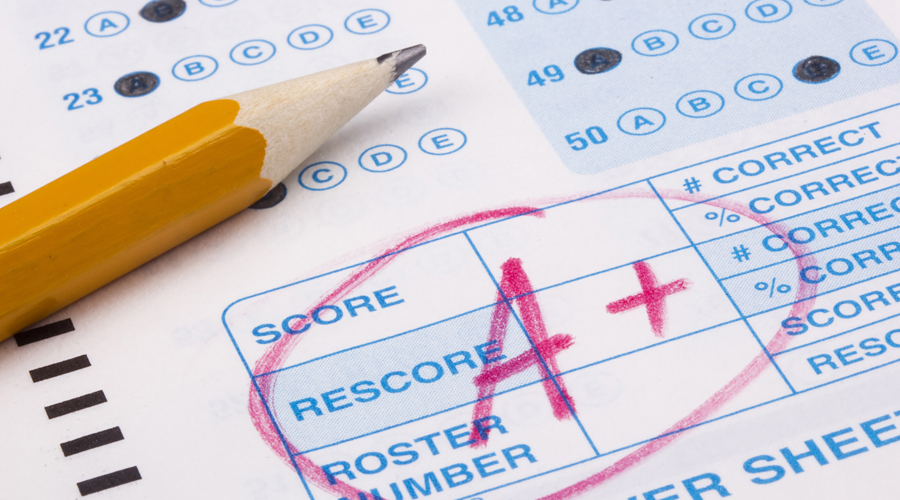A section of teachers expressed concern over the state higher secondary council’s decision that students will write the school-leaving exams this year under watch of teachers of their respective schools.
This year, for the first time in the exams’ history, students will write their papers at ‘home centres’ — their own schools.
The theory papers of the HS exams will start on April 2 and continue till April 20.
The guidelines for the exams issued recently by the West Bengal Council of Higher Secondary Examinations state teachers will be deployed on invigilation duty at their respective schools.
Other boards that regularly conduct exams at home centres deploy teachers from other institutions on invigilation duty for the sake of fairness.
A teacher said maintaining the sanctity of the examinations was paramount and the council should have arranged for ‘neutral teachers’ to keep watch on the examinees.
Swapan Mandal, assistant general secretary of the Bengal Teachers’ and Employees Association, said: “Other boards like the CBSE and ISC council, which conduct examinations at home centres, engage personnel from other centres for the sake of maintaining fairness. But the state HS council is not following that norm for some inexplicable reason.”
Asked about such allegations, council president Chiranjeeb Bhattacharya said: “This year the number of centres has almost trebled — from 2,300 (2020) to 6,800. Engaging teachers from other institutions in such a large number of schools would have been a massive logistical exercise. It would also involve maintaining a large pool of data. It was difficult for us to manage such a huge task this time.”
The council’s guideline states: “Teachers to refrain from invigilation on the day of a particular subject he or she taught at Class XII.”
Mandal, of the Bengal Teachers’ and Employees Association, however, said: “Not engaging subject teachers as invigilators on the day of the examination cannot ensure sanctity. The scope of unfair practice remains.”
The headmaster of a school, who did not want to be named, said the council had on October 31 announced its plan to hold on-campus examinations.
“It’s baffling that it did not strike them that engaging teachers as invigilators at their respective schools won’t be able to ensure transparency. Teachers might be tempted to be lenient for the sake of their students. Also, they could come under pressure from students they have known for years,” he said.
Breaking with tradition, the council this year is allowing examinees to write their papers at home centres to ensure they don’t have to travel far amid the pandemic.
Each venue will have an isolation room so that the examinees showing symptoms associated with any infection diseases, could write the examination.
Madhyamik examinees, however, will write the tests at away-centres.

